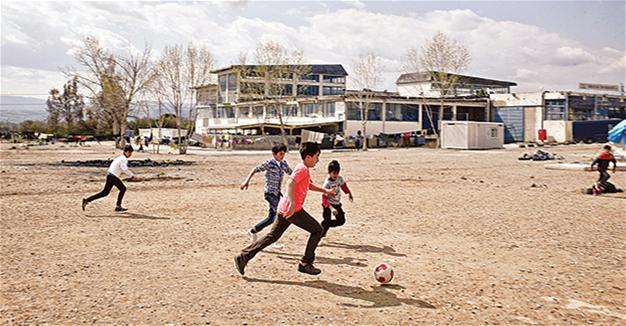Foreign humanitarian organizations in Turkey under scrutiny
Sevil Erkuş - ANKARA

AFP photo
Turkey’s Interior Ministry has ended the activities of four foreign nongovernmental organizations operating in Turkey on the grounds of “national security,” including the United States-based Mercy Corps, a Turkish official told the Hürriyet Daily News on condition of anonymity.
The deputy secretary general of the United Nations, the U.S. State Department and U.S. Ambassador to Turkey John Bass all held talks with Turkish officials, including Deputy Prime Minister Veysi Kaynak, on behalf of the banned Mercy Corps, said the official.
The Interior Ministry also refused to renew the licenses of three other NGOs while another also withdrew an application to open an office, according to the official.
The official said they had been informed that the NGOs whose permits were revoked had been continuing their activities illegally in cooperation with Turkish associations and foreign NGOs and individuals.
Speaking to Anadolu Agency on April 12, Kaynak said U.N. officials and the U.S. ambassador, along with European Union officials, visited him after the cancelation of the work permits in an effort to learn the reasons for the decisions and the parameters to allow them to work in Turkey again.
Kaynak said 48 foreign NGOs and foundations had been operating in Turkey on issues concerning refugees since the Syrian crisis erupted.
“Along with Gaziantep and Hatay, where refugees are being sheltered, these organizations have also sought licenses to operate in Diyarbakır. Hatay and Gaziantep are significant, as they are the first gateway of migration and host large numbers of immigrants, but Diyarbakır has few migrants,” Kaynak said, adding that he found their request to operate there suspicious.
“There is not that much interest in Kilis, which has a [large] refugee population,” Kaynak added.
These foundations should not operate in Turkey without permission, transfer money without permission and employ wanted persons and criminals, the deputy prime minister said.
He also said that while the Turkish government was struggling with the Islamic State of Iraq and the Levant, the Democratic Union Party (PYD) and the outlawed Kurdistan Workers’ Party (PKK), they had realized that “foundations have lots of activities.”
The foreign NGOs whose activities have been curtailed in Turkey include the Mercy Corps, the Italian-based Coordination of the Organizations for Voluntary Service (COSV), the U.K.-based International NGO Safety Organization (INSO) and the U.S.-based Business Software Alliance Incorporation (BSA).
The COSV and INSO were denied permission to operate in January, while the Mercy Corps and BSA were prevented from doing so in February.
The Turkish Coalition of America also withdrew a request to open a representative office in Turkey at the beginning of February, according to officials.
